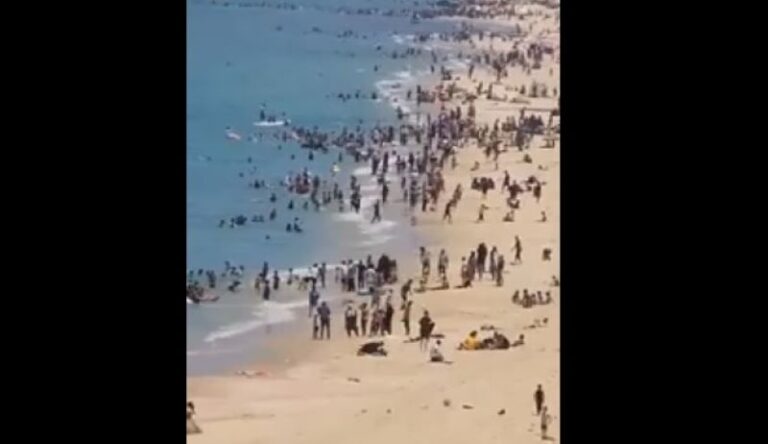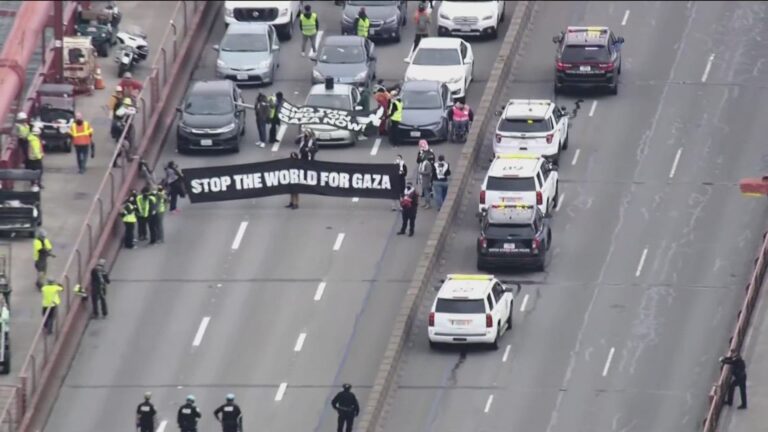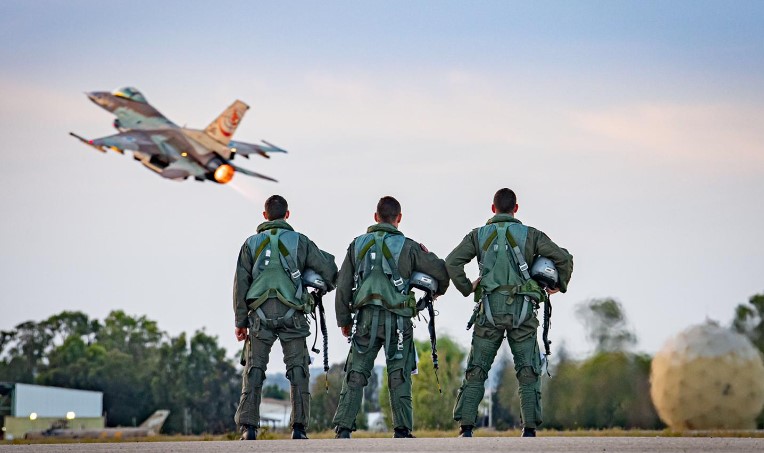 President Barack Obama said Wednesday he plans to use his historic visit to Hiroshima with Japanese Prime Minister Shinzo Abe to reflect on the suffering of war and the need to take steps to prevent it. Abe said he had no plans to reciprocate Obama’s gesture by paying his own visit to Pearl Harbor.
President Barack Obama said Wednesday he plans to use his historic visit to Hiroshima with Japanese Prime Minister Shinzo Abe to reflect on the suffering of war and the need to take steps to prevent it. Abe said he had no plans to reciprocate Obama’s gesture by paying his own visit to Pearl Harbor.
Obama’s opened his trip to Japan with much intrigue about his upcoming stop in the city where the U.S. dropped the first atomic bomb. But that first-ever visit by a sitting American president was caught up in the controversy in Japan over the recent arrest of a former Marine in connection with the murder of a Japanese woman in Okinawa.
Abe ripped into Obama while demanding U.S. steps to prevent further incidents. Obama told Abe that the U.S. would support having the suspect prosecuted through Japan’s legal system.
Obama’s comments on Hiroshima after meeting with Abe offered a preview of the approach he will try to take at the site of the U.S. attack on Aug. 6, 1945, that killed 140,000 people.
The White House has ruled out an apology by the president for the atomic bombing, but the visit is being viewed by Japanese citizens as a conciliatory gesture.
“One of the things I hope to reflect on when I’m at Hiroshima and certainly something I reflected on when I was in Vietnam was just a reminder that war involves suffering,” Obama said after arriving from Vietnam. “We should always do what we can to prevent it.”
But he added: “It’s important for us to act on occasion in order to make sure that the American people are protected.”
Abe said he “wholeheartedly” welcomed Obama’s decision, adding that he was convinced that the joint visit would create strong momentum toward global denuclearization.
At the same time, Abe said he had “no specific plans” to visit Pearl Harbor in Hawaii. Some have called for such a trip as a sign of Japan’s acknowledgement of its wartime actions.
The surprise attack by the Japanese military on Dec. 7, 1941, killed more than 2,400 people, wounded scores and led the United States’ entry into World War II.
Abe pointed to his previous stop at the World War II memorial in Washington at a speech to a joint session of U.S. Congress as acts intended to pay tribute to victims of the war on both sides.
Raw emotions over the U.S. military presence in Okinawa were on display on Obama’s first day in Japan, stoked by the arrest of Kenneth Shinzato, 32, after the body of a 20-year-old woman was found at a location he provided in a forest in central Okinawa. The murder has triggered national outrage, potentially complicating the long-delayed relocation of Marine Air Station Futenma from one location on the island to another.
Acknowledging his own “profound resentment,” Abe called it an “absolutely despicable crime” committed by a “self-centered” offender. He said he told Obama that the feelings of the Japanese people must be sincerely taken to heart.
“I am just speechless,” Abe said through a translator.
Abe called on the American people to take rigorous and strict steps to prevent another incident in the future.
Obama was contrite.
“I extended my sincerest condolences and deepest regrets,” the president said. He said the U.S. would fully cooperate with Japan to allow the suspect to be prosecuted “under the Japanese legal system.”
The incident has rekindled long-running opposition from many Okinawa residents who want the U.S. base off the island entirely. Abe suggested Japan would continue looking for ways to resolve issues that come up under the U.S.-Japan agreement that allows Washington to stage troops there. Still, he said the case had given Okinawa residents a “strong sense of uneasiness.”
“My intention is to thoroughly implement measures to prevent crimes and ensure peace of mind among the people in Okinawa,” Abe said.
Earlier Wednesday, Obama ended his stay in Vietnam by meeting with government leaders and addressing the Vietnamese people in a speech. In a show of how relations between the former wartime enemies had thawed, Obama announced the end of a five-decades-old U.S. ban on the sale of arms to Vietnam. He also announced that the Peace Corps would begin operating in the country for the first time.
In a town hall event, Obama praised the country’s next generation of leaders for being more conscious of the environment and urged them to “do something about” climate change. He said Vietnam will be one of the countries most affected by the trend of warming temperatures and rising seas.
(AP)






3 Responses
According to Kurosawa in his final PBS interview, when told Hirohito was to make his first-ever public broadcast, “We all fully expected the Emperor would deliver the long-awaited order…”
From the Times of London’s online education site: “…all Japan was contemplating the Honourable Death of the Hundred Million. On August 15 1945, walking to the film studio to hear Emperor Hirohito’s historic broadcast, Kurosawa saw the streets fully prepared for mass suicide; there were even shop owners staring at the bare blades of their unsheathed swords. On the way back, the very same people were bustling about with cheerful faces as if preparing for a festival the next day. “I don’t know if this represents Japanese adaptability or Japanese imbecility,” he wrote in his autobiography. “In either case, I have to recognize that both these facets exist in the Japanese personality. Both facets exist within my own personality as well.”
August 1, 1944 the Tokyo Ministry of War release a memo dictating “the Japanese Army policy of prisoners of war. Its aim is to not let a single prisoner of war escape, to annihilate them all and not leave any traces.”
Dropping the atomic bomb on Hiroshima immediately saved the lives of 100,000 Allied prisoners on an Indonesian island who the Japanese were ready to murder that day.
Emperor Hirohito sent the message to the general (Yamashita?) not to kill them.
He refused.
Hirohito’s son had to fly to the island where the captives were and personally ordered the general in charge of the killing to cease and desist immediately.
Army estimates of American soldiers who would be killed in a standard invasion was 1,000,000.
Many more Japanese would have been killed than from the two atomic bombs if they tried to defend their islands.
It would be a good idea for the Japanese to apologize for killing millions of Chinese and Asian people and Allies and for starting a war of world conquest.
The atomic bombs would have never been dropped if Japan didn’t start the war with the U.S.
Not to mention the many horrible war crimes they committed against US POWS in the Philippines.